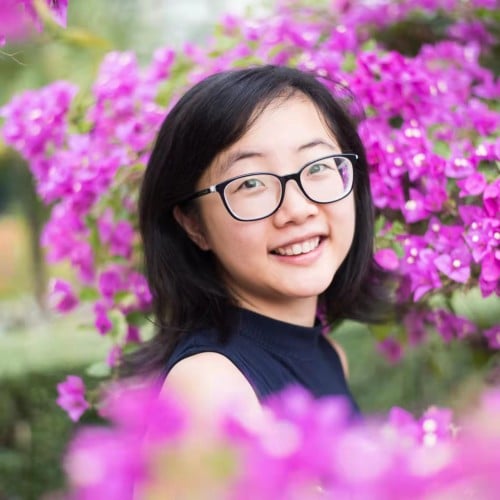
HK as you've never seen before through the eyes of young people who live here
Interviews with nine young Hongkongers make up a new documentary about life in the city
 See Wai-wa shows what his life in Qinghai is like
See Wai-wa shows what his life in Qinghai is likeSee Wai-wa looks like an ordinary local boy and Li Hoi-ting looks like an ordinary local girl; but he, a new immigrant, struggles with his identity and she, an overweight girl, struggles with her appearance.
“They are two sides of a mirror,” director Cheung King-wai says of the two teenagers, who feature in his recent documentary The Taste of Youth. The film, which premiered at the Hong Kong International Film Festival last week, tells the stories of nine young Hongkongers, from innocent primary schoolers to secondary students facing different problems, to a volunteer champion in his 20s.
“It’s more about Hong Kong in 2015 through the eyes of these young people, rather than a documentary about [young people],” says Cheung of the film.
Young Post talked to Wai-wa, or Hua, as the family calls him, originally from the northwestern Qinghai province and now a Form Five student at Lingnan Dr Chung Wing Kwong Memorial Secondary School.
Despite living in Hong Kong for more than 10 years, he still has close ties to his hometown, where most of his family and close friends live. He goes back every year, sometimes twice, even though it’s a 30-hour train journey away.
Wai-wa’s father died when he was little, and his mother moved with him to Hong Kong so he would get a better education. But life here wasn’t easy.
His mother started by selling clothes in a Sham Shui Po shop, and struggled to learn Cantonese while trying to get rid of her native accent.
Once, when she was on the MTR talking to her son, then eight, in Putonghua, a man walked up to them and spat on her. “I was scared, but I had no clue what was happening,” Wai-wa recalls. His mother didn’t talk to him about discrimination until he was older.
“I don’t like Hong Kong,” the boy, who just turned 18, says in the film. But he can’t deny that “whatever happens to Hong Kong concerns me”.
Speaking in fluent Cantonese, Wai-wa today is more concerned about the pace of life and the high pressure. “Every time I go back to my hometown, my friends ask why I walk so fast, too fast; I can’t help it, I’m used to it,” he says.
The film’s crew followed Wai-wa to Qinghai for Lunar New Year last year. “What impressed me most was that Wai-wa was very eager for us to film his life in Qinghai,” says Cheung.
The crew followed Wai-wa on and off for a year in 2015, filming in both Qinghai and Hong Kong. The footage that ended up in the 78-minute film is mostly from Qinghai.
“The thing with documentaries is that the camera leads you to a different world, like Wai-wa’s world. He took me to the world of Qinghai,” says Cheung.
“I wanted to show them [where I grew up and] my true self,” Wai-wa says. He feels he’s different in Hong Kong and in Qinghai. “I tend to be warmer to people when I’m in my hometown,” he says, adding that he finds his Qinghai friends more sincere.
Wai-wa was asked about discrimination on camera. Liang Liang, a close friend who lives in the same Qinghai neighbourhood as Wai-wa’s family, was astonished: “Would you discriminate against me if I went to Hong Kong?” “No,” Wai-wa says firmly, ending the conversation.
Cheung met Wai-wa and all the other characters in 2014, through The Hong Kong Federation of Youth Groups’ Ode to Joy Concert of Ten Thousand, which set a Guinness World Record for most people singing together for a live radio broadcast.
During the rehearsals, Cheung and his crew started to approach different students. “I’ve been making documentaries since 2006. I can instinctively tell whether a person has stories behind him. The way they make eye contact with you and the way they talk to you tells a lot,” says Cheung.
When he was first approached, Wai-wa was a bit nervous, while thinking, “Would I become a celebrity?” Now that the film is out, he feels a bit like a star, with interviews scheduled and screenings to go to. “I look better in person,” he insists. “So you’re accusing me of not doing a good job filming you?” Cheung laughs.
The director and his crew got the characters to really open up to them in front of the camera.
“I don’t have specific techniques, but I am frank,” Cheung says. When the director first met Hoi-ting, she told him she was bullied in primary school; when he first met Wai-wa, he told him about his father’s death and his life in Qinghai.
“They know I’m sitting here to listen to them, and there is a camera filming, so potentially the whole world is listening, and they have a lot of stories to tell.”
“That’s exactly how I feel,” says Wai-wa, adding if he talks to his family “they have their opinions [on my life] while teachers and friends don’t necessarily understand me”.
The Taste of Youth opens in June
